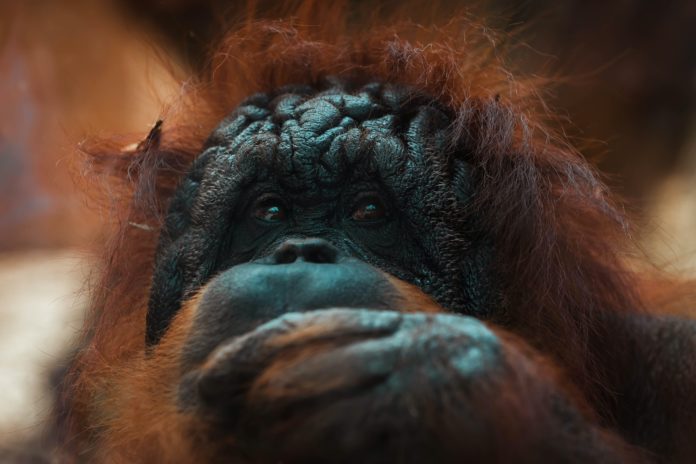Africa’s great ape populations could lose up to 94% of their habitats by the year 2050, and for these critically endangered species, this loss will be disastrous. A habitat loss of this scale could could drive many great ape species to extinction, marking yet another casualty in the world’s ongoing mass extinction event.
The prediction comes from a study published in Diversity and Distributions, which forecasts the outcomes for African great ape species over the next 30 years. The study was carried out by an international team of scientists, and included contributions from Jacqueline Sunderland-Groves, a research scientist and great ape expert in the University of British Columbia’s Faculty of Forestry.
African great ape populations are at risk
African great apes — a family of primates that includes gorillas, chimpanzees, and bonobos — are among our closest living relatives in the animal kingdom. They’re currently found in 21 different countries, yet most of their geographic range falls outside of protected areas and is therefore at risk of being overtaken for human-based purposes.
Climate change is also expected to disrupt these geographical regions. For example, changing temperatures could affect where vegetation grows, and cause many habitats to become warmer and drier. These changing conditions will make it difficult for great ape populations to continue thriving in these regions in the future.
To predict how these factors will affect great ape populations, the team behind the study used two decades worth of African great ape observations from the International Union for Conservation of Nature. They then modelled how climate change, land-use changes, and human population growth could affect these vulnerable primates in the coming years.
Their analysis included models for “best case” scenarios, where carbon emissions decline over time, and “worst case” scenarios, where emissions continue to increase at their current rate.
Unfortunately, the team found that even the best case scenarios look grim. In a future where carbon emissions are better regulated, Africa’s great ape populations are still expected to lose 85% of their natural habitats by the middle of the century. Such a loss would be devastating for these critically endangered species.
In the worst case scenario, up to 94% of the apes’ natural geographical range will be lost. The authors note that some species may be able to adapt to new habitats, but for many great apes, this change will be too great to overcome.
Immediate conservation strategies are needed
While both scenarios are bleak, the results of this study show that we still have time to mitigate some habitat loss. By reducing carbon emissions and implementing immediate conservation strategies, we could save nearly 10% of Africa’s great ape range.
“Some climate change-related range loss can be avoided if appropriate management measures are taken, together with increasing the protected area network within great ape range states based on suitable habitats for them,” Sunderland-Groves said in a Q&A with UBC News.
In Canada, these measures could involve holding politicians accountable to their promises to reduce carbon emissions. The country’s current goal is to reduce emissions by 40-45% over the next nine years and reach net-zero emissions by the year 2050.
Emission reductions likely won’t save all of Africa’s great ape populations, but they could help prevent us from losing these species entirely.
“[Great apes] are our closest living relatives and losing our nearest kin would be unthinkable,” Sunderland-Groves added.
“We all have a moral and ethical responsibility to ensure that great apes are protected long into the future.”










































